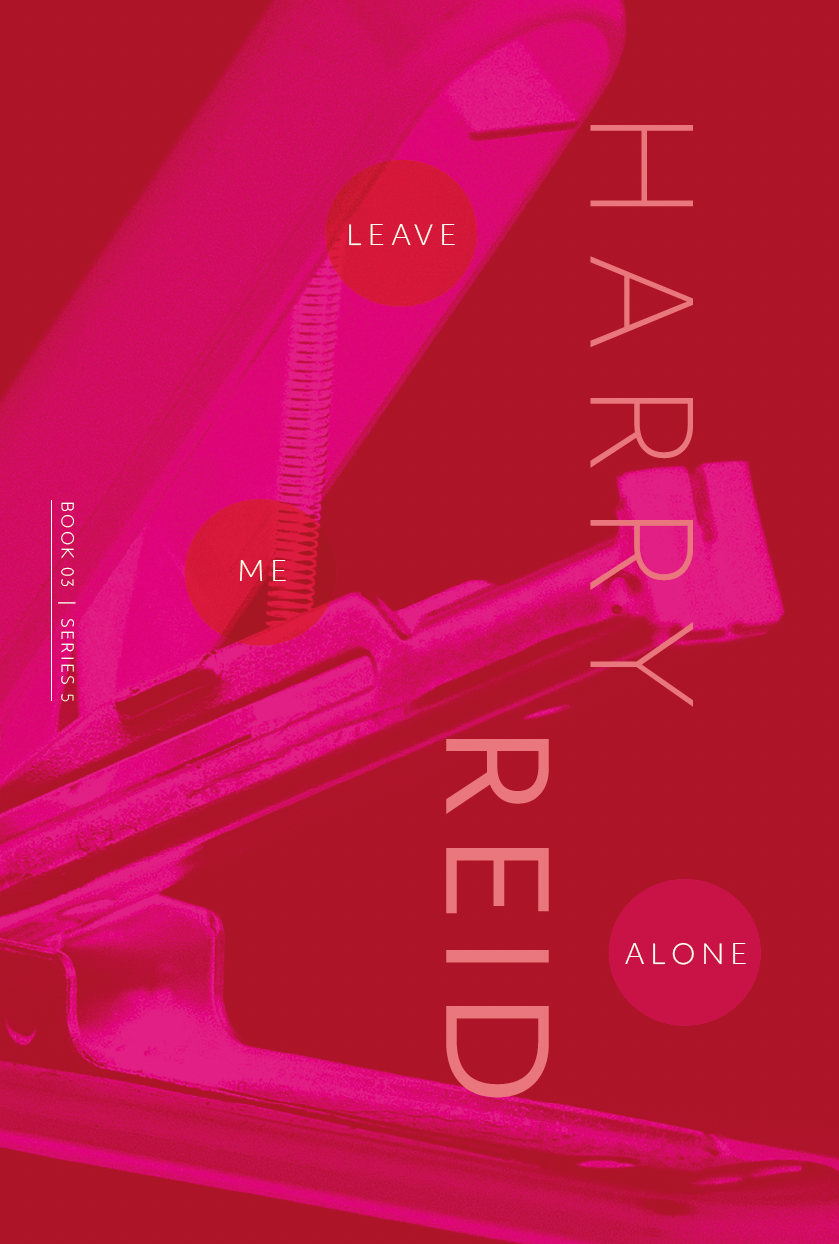
In Harry Reid’s Leave Me Alone, we enter a nondescript door down a laneway, casually apply the secret knock, and the door slides open – just enough for us to squeeze through sideways before it shuts again. This is not the door to the reception, or to the the main office; it’s the door to the sly-grog palace of language inside our minds. It’s the only way to remove the taste of the weasel words and organisational knots the day’s labours gather. You can get a straight-up glass of viscous word-gin that you could stand a spoon up in. No ice.
To undertake poetry in and of the office is to enter into a pact: you will navigate and handle its materials to their maximal effect in diametric opposition to those materials themselves. That opposition, and the degree to which it’s cranked, is up to the poet.
The device deployed for Reid’s operation is poetic voice and it features as a set of pulleys throughout this book. The intricate set-up has the ‘protagonist’ gesturing towards the everyday layers of the workplace, while showing us how this particular duck navigates its surface and paddles below with bewildered fury. There is little choice (in a dearth of twenty-first century patrons) but also because it is a glorious-appalling game entered into once the ‘contract’ is signed:
what if prerogative turned outwards, as a verb? what if a problem shared became mine, entirely? I make my own hours only to run off with them, listening to Luther Vandross in the museum & still in the ‘fake it’ stage of career construction
This is the core: the poems unfold as a manual of tart and wily response to dire late capitalism, creating a suspended, constantly deferred ending. I need you for now – says the poem’s subject to the office, to its work – but I understand all the terms of this deal.
Reid has concocted, via the gambolling poetic voice, a portrait of routines and musings (some as thought bubbles, some conversational: ‘Ashlee! / please don’t go to New York!’) affectionately, and perhaps faithfully, reproduced so that they may be seen in full uncanniness. All of the office’s materials – its customs, its dialects, its equipment, the roles of its people – are flipped, and, as with a Jeff Koons super-scaled sculpture of the familiar, are made to ask: did you know that annual report contents really look like this? Now that you can see the belly, do you see what’s going on?
Corporate language has always been ripe for the plucking, but poetry’s job is to do something more than pluck. And poets must do more than whip out lunch poems – though O’Hara is a welcome presence through these automatic doors. Poetry of the office must crank the tension and keep true to the pact, squeeze every bit of delight from the ridiculous and permanent present, and keep a little juice over for after-hours, while that term is still remembered.
It is my pleasure to invite you into this nexus of art, precarity, skewering and sincerity. Welcome to the ‘heritage-listed foyer’ – they’ve ordered you a workstation, and your induction starts now.









